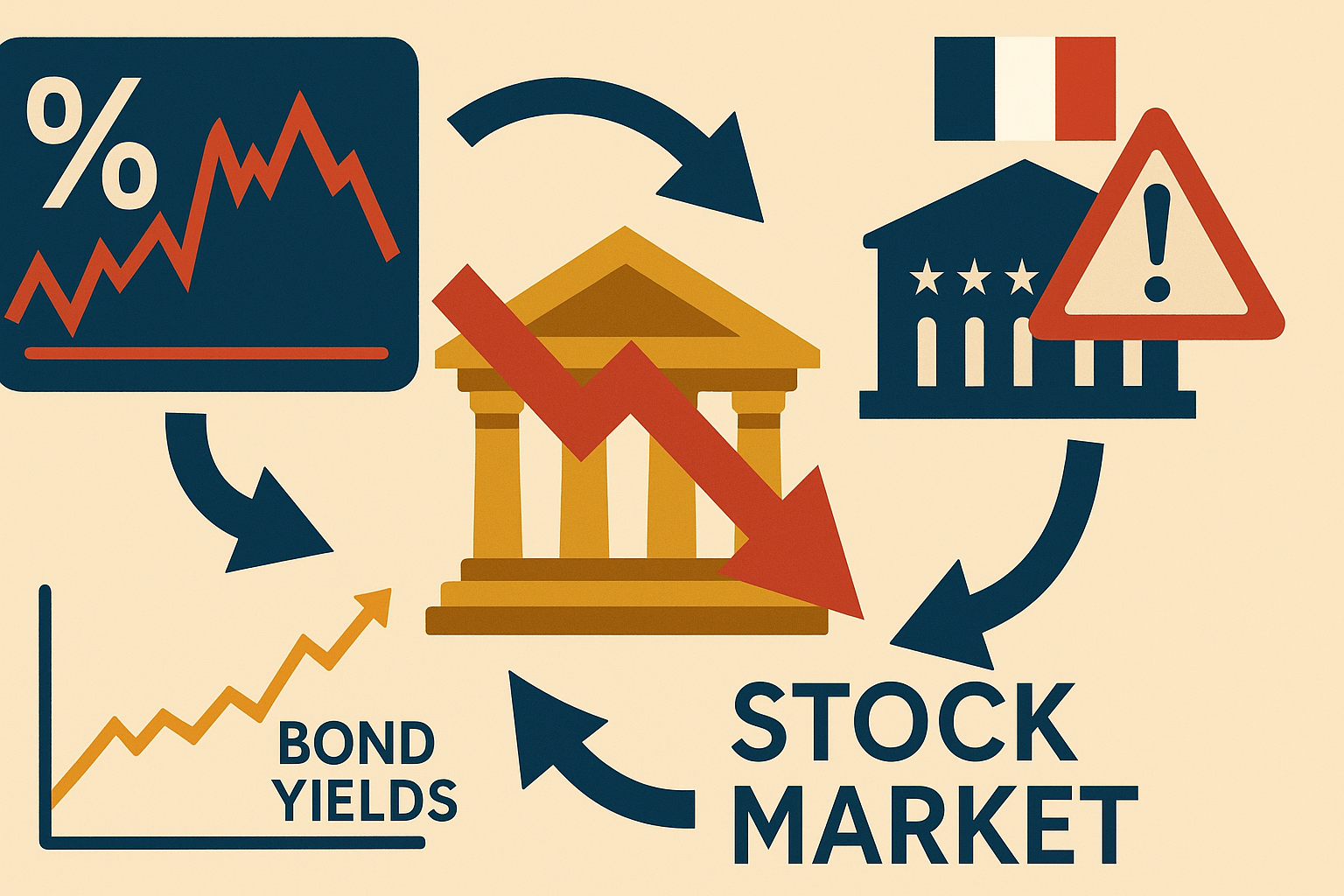French financial markets came under renewed pressure this week as investors reacted to the growing likelihood of a government collapse next month. Borrowing costs surged to their highest level since March, while equities suffered a second consecutive day of steep declines.
Confidence Vote and Fiscal Plan
Prime Minister François Bayrou has called a confidence vote for September 8 on his proposed deficit-cutting budget. The package includes €44 billion in tax increases and spending cuts for 2026, featuring a one-year freeze on state spending and the removal of two national holidays.
Addressing union members, Bayrou framed the vote as a decisive moment: lawmakers, he said, must choose “whether they are on the side of chaos or on the side of responsibility.”
Finance Minister Éric Lombard insisted the government was not resigned to defeat, but acknowledged that failure to pass the plan could trigger deeper financial instability, even raising the prospect of IMF intervention.
Market Reactions
- French 10-year bond yields rose to 3.53%, narrowing the gap with Italian bonds to less than 0.1 percentage points.
- The Cac 40 index fell 1.7%, following a 1.6% drop on Monday.
- Major banks, including BNP Paribas, Société Générale, and Crédit Agricole, each fell by more than 4%, reflecting investor concerns over the domestic economy.
“The risk the market sees is that if the government falls again, it’s complete stalemate and there’s no chance of tackling the deficit,” said Peter Schaffrik, chief European macro strategist at RBC Capital Markets.
Political Challenges
Opposition parties, including the Socialists and the far-right Rassemblement National, have already pledged to vote against Bayrou, making his defeat almost certain. Analysts warn that replacing the prime minister would not resolve the deeper issue of a fragmented parliament, where no party holds a clear majority since President Emmanuel Macron’s failed snap election last year.
Bayrou’s predecessor was ousted in December after only a few months in office, underscoring the fragile nature of France’s current political landscape.
Broader Economic Impact
Investors fear that continued instability could derail France’s fiscal consolidation efforts. Analysts at Barclays expect the deficit to remain virtually unchanged at 5.6% of GDP in 2025 and 5.4% in 2026, well above the EU’s 3% threshold. The government’s official target is 4.6% by 2026.
Some warn of even greater risks. Nicolas Trindade of Axa Investment Managers said markets were now pricing in a higher likelihood of collapse, with the possibility of snap elections giving the far right a chance at an outright parliamentary majority.
Currency and Outlook
The euro gained slightly against the dollar on Tuesday, after falling 0.8% on Monday amid market jitters. Analysts remain cautious, debating whether the turmoil will have broader implications for the eurozone or remain a French-specific issue.
For now, investors are bracing for heightened volatility ahead of the September 8 confidence vote, widely expected to unseat Bayrou and prolong France’s cycle of political and financial uncertainty.








